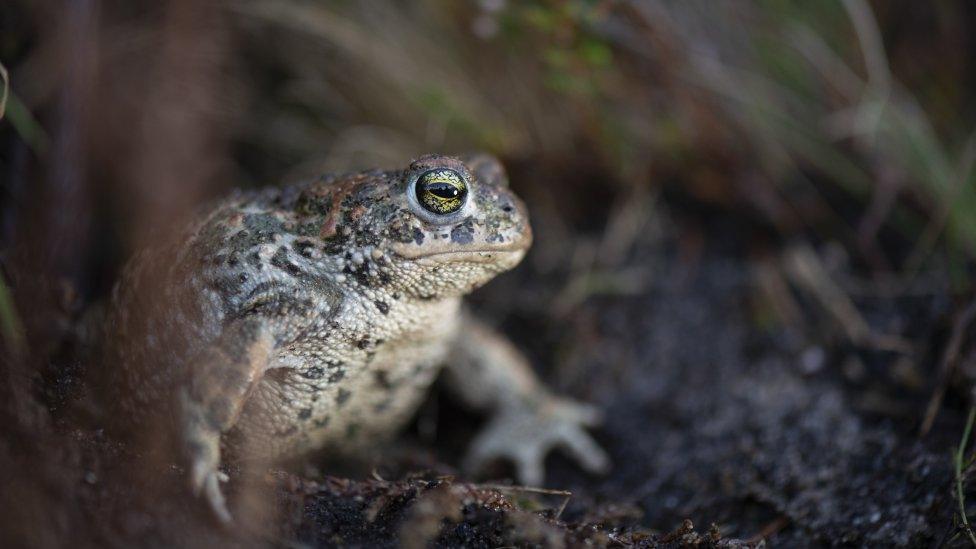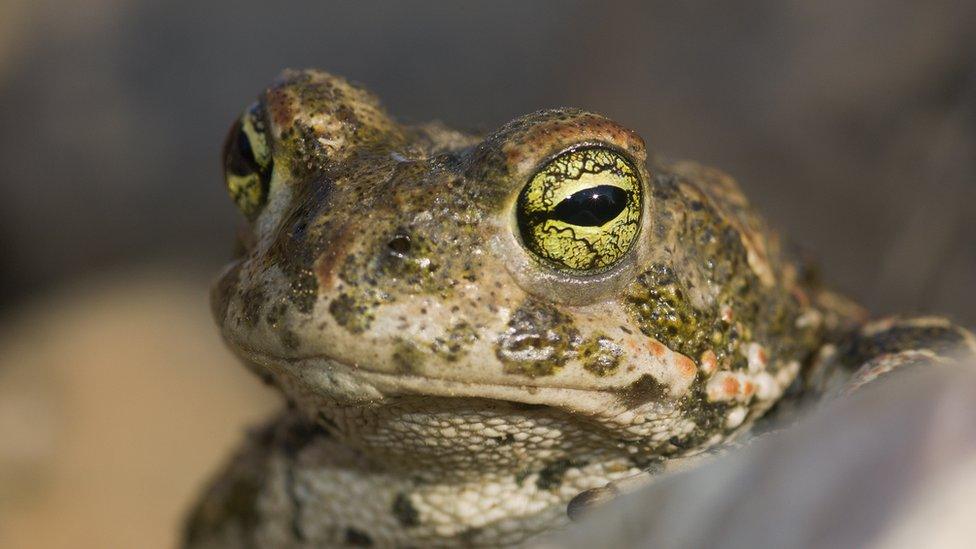RSPB appeal to clean natterjack toad breeding ponds
- Published

The RSPB says it hopes to see natterjack toads breeding at its site in the "not-too-distant future"
Volunteers are wanted to help one of the UK's rarest native amphibians start breeding at a nature reserve.
The conservation team at RSPB Hodbarrow in Cumbria say natterjack toads favour open areas with shallow sandy pools.
However, the site's ponds have become overgrown with scrub.
The RSPB has launched an "urgent appeal" for people to take part in a series of events which will see pools cleared and toad numbers monitored.
The natterjack, which gets its common name from the loud rasping call made by the male in the spring, is a European protected species and listed as rare and threatened.
Hodbarrow's is the only indigenous population at an RSPB reserve, the organisation said.
'Wonderful landscape'
Site manager Dave Blackledge said a series of sessions would provide "an exciting opportunity to improve a hidden gem of Cumbria, reinvigorating its wildlife".
He added: "We need help of all kinds to conserve this wonderful landscape - trimming back around paths, cleaning signs, counting birds, watching over the tern colony, maintaining hides and, of course, the all-important toad monitoring.
"By clearing pathways, we'll create just the right habitats for the natterjack toads and we're hopeful to see this rarest of species breeding here again in the not-too-distant future."
An event will be held on 28 September, starting at 10:00 BST, with further sessions arranged for 26 October and 23 November.
Volunteers will also be able to learn about tern wardening, as well as monitor rare butterflies.
Next September the site will host Cumbria: The Iron Line Project, which will see visitors walk along railway lines once used by iron ore miners.

Follow BBC North East & Cumbria on X (formerly Twitter), external, Facebook, external and Instagram, external. Send your story ideas to northeastandcumbria@bbc.co.uk, external.
- Published16 May 2023
